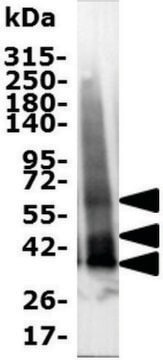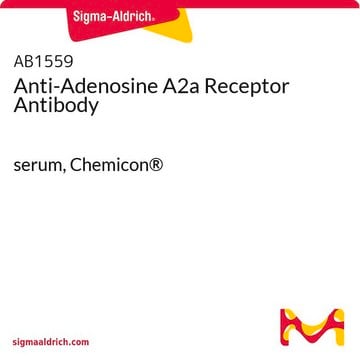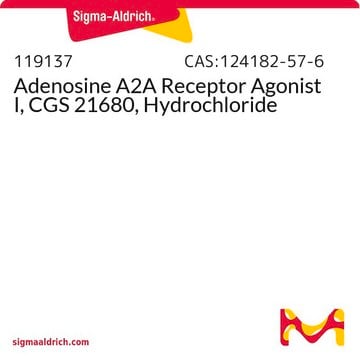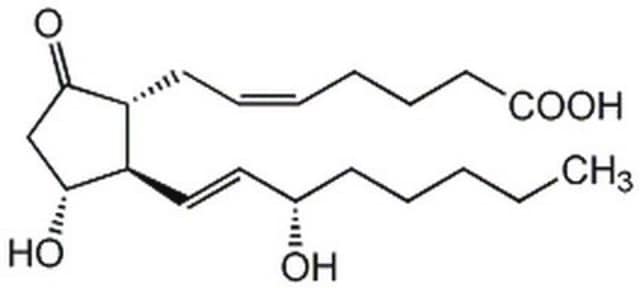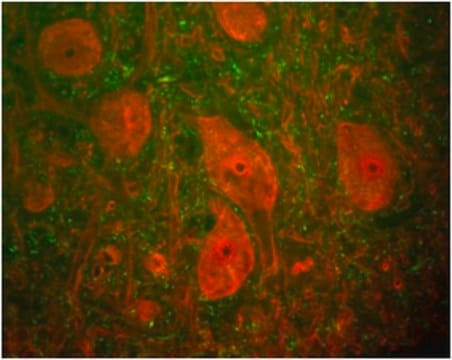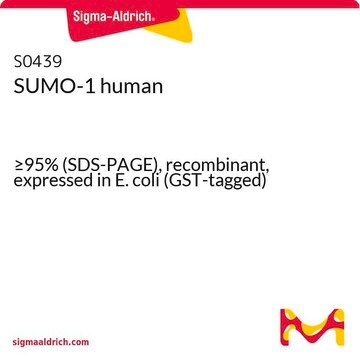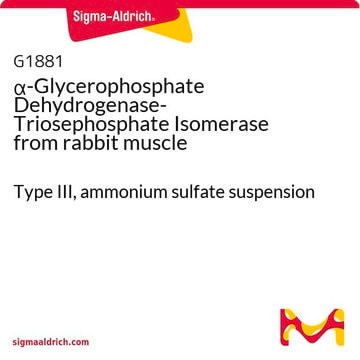SAE0103
A2A (Adenosine Receptor A2A)
recombinant, expressed in Sf9 cells
Sign Into View Organizational & Contract Pricing
All Photos(3)
About This Item
UNSPSC Code:
12352202
NACRES:
NA.26
Recommended Products
recombinant
expressed in Sf9 cells
description
N-Terminal contains a strep tag II and 10X Histidine tag followed by a TEV protease cleavage site.
Assay
≥90% (SDS-PAGE)
form
aqueous solution
mol wt
47.7 kDa
concentration
1.72 mg/mL
NCBI accession no.
UniProt accession no.
shipped in
dry ice
storage temp.
−70°C
Biochem/physiol Actions
A2A is a class A GPCR involved in regulating myocardial blood flow and hypertension.
Sequence
MWSHPQFEKHHHHHHHHENLYFQGPIMGSSVYITVELAIAVLAILGNVLVCWAVWLNSNLQNVTNYFVVSLAAADIAVGVLAIPFAITISTGFCAACHGCLFIACFVLVLTQSSIFSLLAIAIDRYIAIRIPLRYNGLVTGTRAKGIIAICWVLSFAIGLTPMLGWNNCGQPKEGKNHSQGCGEGQVACLFEDVVPMNYMVYFNFFACVLVPLLLMLGVYLRIFLAARRQLKQMESQPLPGERARSTLQKEVHAAKSLAIIVGLFALCWLPLHIINCFTFFCPDCSHAPLWLMYLAIVLSHTNSVVNPFIYAYRIREFRQTFRKIIRSHVLRQQEPFKAAGTSARVLAAHGSDGEQVSLRLNGHPPGVWANGSAPHPERRPNGYALGLVSGGSAQESQGNTGLPDVELLSHELKGVCPEPPGLDDPLAQDGAGVS
Preparation Note
50mM Hepes pH 7.4, 200mM NaCl, 0.05%/0.006% DDM/CHS
Storage and Stability
Thaw on ice. Upon first thaw, briefly spin tube containing enzyme to recover full content of the tube. Aliquot into single use aliquots. Store remaining undiluted protein in aliquots at -70°C.
Storage Class Code
10 - Combustible liquids
WGK
WGK 1
Flash Point(F)
Not applicable
Flash Point(C)
Not applicable
Choose from one of the most recent versions:
Certificates of Analysis (COA)
Lot/Batch Number
Sorry, we don't have COAs for this product available online at this time.
If you need assistance, please contact Customer Support.
Already Own This Product?
Find documentation for the products that you have recently purchased in the Document Library.
Byron Carpenter et al.
Frontiers in pharmacology, 8, 898-898 (2018-01-10)
Adenosine receptors (ARs) comprise the P1 class of purinergic receptors and belong to the largest family of integral membrane proteins in the human genome, the G protein-coupled receptors (GPCRs). ARs are classified into four subtypes, A1, A2A, A2B, and A3
Robert D Leone et al.
Computational and structural biotechnology journal, 13, 265-272 (2015-05-06)
The last several years have witnessed exciting progress in the development of immunotherapy for the treatment of cancer. This has been due in great part to the development of so-called checkpoint blockade. That is, antibodies that block inhibitory receptors such
Our team of scientists has experience in all areas of research including Life Science, Material Science, Chemical Synthesis, Chromatography, Analytical and many others.
Contact Technical Service